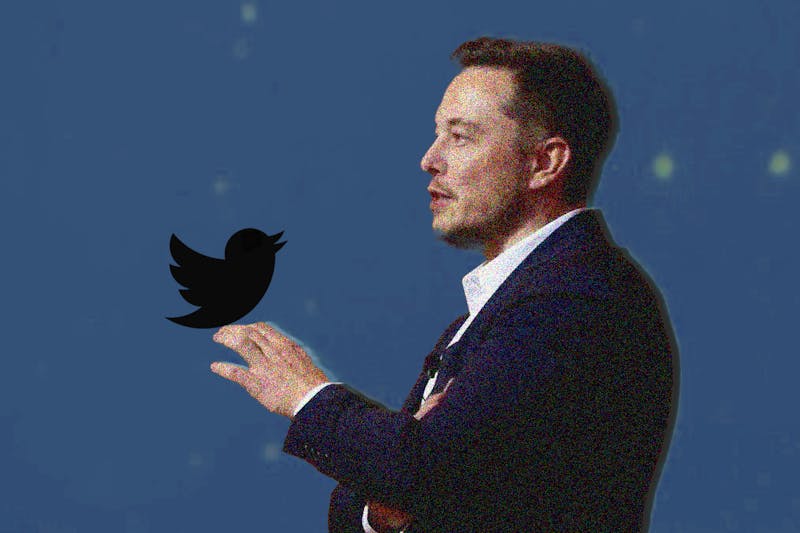
Money, money, money. The intricate dance between wealth and power waltzes through our society with its calculated steps, influencing far more than apparent to the unassuming observer.
Forbes Annual World’s Billionaires List revealed that the planet's 2,640 billionaires have amassed a total of $12.2 trillion among them. If that wasn’t enough, wealth is extremely concentrated — the world's richest 85 people have the same wealth as the bottom 50% of the world’s population.
There are also more uber-wealthy philanthropists than ever before: giving billions to what they consider to be charitable causes, such as campus buildings. Take our most recent, infamous ex-billionaire Sam Bankman-Fried. The fallen 31-year old crypto mogul convicted of fraud preached the consequentialist philosophy of effective altruism and was one of the key leaders of the movement pledging to give nearly all his money away and even willing to “contribute more than a billion dollars a year.”
Effective altruism (E.A.) is a rising philosophy: focused on “using evidence and careful reasoning to take actions that help others as much as possible”.
Doesn’t sound too bad, right? Trying to make an effective impact through your charitable actions — isn’t that what we all want? But after Bankman-Fried’s crypto empire imploded in Nov. of 2022, losing more than $8 billion in customer funds and evidence of him using E.A. to attempt to buy an open congressional seat emerged, maybe it’s time to question the moral credibility of the crusade.
To preface, I do want to acknowledge that billionaires could choose to hoard their wealth instead of making philanthropic donations (even though they receive relatively modest tax breaks and positive public image boosts). To that end, I also think effective altruism has a few really good ideas: that most of us in wealthy countries could be giving away more without affecting our quality of life and that we should take a global view of helping others by considering the effectiveness of charity.
However, this trend of Silicon Valley tech bros preaching E.A. as an excuse to accumulate gross amounts of wealth is leading to “top-heavy philanthropy” in which charities are relying on larger donations from a smaller number of donors. This has a corrosive effect on the independent nonprofit sector. In its current form, the money being spent is actually doing less to help society and more to propel the aggrandizement of these billionaires, perpetuating a cycle of influence extending far beyond their accumulated wealth.
The fundamental flaw in effective altruism lies in its emphasis on vertical programs like malaria bed nets and vaccines, which narrowly target specific diseases, neglecting the comprehensive resolution of broader systemic challenges. The concentration on specific interventions perpetuates a cycle of merely addressing symptoms instead of tackling the root causes underlying broader issues in society. This, fundamentally, encapsulates my primary critique of the movement.
For example, Facebook founder Mark Zuckerburg donated $100 million in a top-down approach to transform the struggling Newark public school district. The reform efforts faced backlash for their disregard of community input. The Foundation for Newark's Future, established to manage Zuckerberg's donation, further deepened the divide by excluding local foundations and individuals who could have contributed valuable insights. Another huge ethical issue arose when it was revealed that $20 million went to consultants, some earning high daily rates, while teachers faced increased work demands without substantial compensation. This fueled resentment and undermined the intended benefits for educators, leading to tensions within the teaching community.
This top-down philanthropic approach exemplified by Zuckerberg's intervention is fundamentally rooted in the principles of effective altruism. E.A. often prioritizes centralized decision-making and interventions that may seem theoretically efficient but lack community involvement, communication, and input from local stakeholders.
If the state or local government were to take the lead, there might be a more inclusive and community-driven approach to education reform. The issues raised could potentially be addressed through a more democratic and participatory process led by local authorities.
The exponential increase in assets among Giving Pledgers, like Mark Zuckerberg and Warren Buffett, raises questions about the proportionality of their philanthropy to their affluence. Some of the most considerable gifts go to intermediaries, facilitating immediate tax advantages for the donors. Others resort to channels like limited liability corporations that lack the transparency associated with traditional charitable structures. This shift not only compromises visibility into their philanthropic endeavors but also blurs the line between charitable giving and profit-seeking impact investments, where social benefits are promised but often unproven.
In the long term, the trajectory of mega-philanthropy could shift from taxation of high income and wealth to the warehousing of private fortunes. What happens when we reach that point? When the government is a mere chess piece in the game of multi-billion dollar foundations threatening equality of opportunity, the basic standards of human rights, and exacerbating the wealth gap? Arguably some may say we are already there.
However, I do believe that philanthropy and justice is possible, but this is contingent upon deliberate and intentional commitments from philanthropists. In the face of these challenges, it is crucial to reevaluate the principles guiding philanthropy, urging philanthropists to consider a more democratic and participatory approach. Only through such deliberate efforts can philanthropy truly serve as a force for positive change rather than a perpetuator of existing power dynamics.
LIALA SOFI is a College junior from Roanoke, Va. Her email address is lsofi@sas.upenn.edu.
The Daily Pennsylvanian is an independent, student-run newspaper. Please consider making a donation to support the coverage that shapes the University. Your generosity ensures a future of strong journalism at Penn.
Donate









